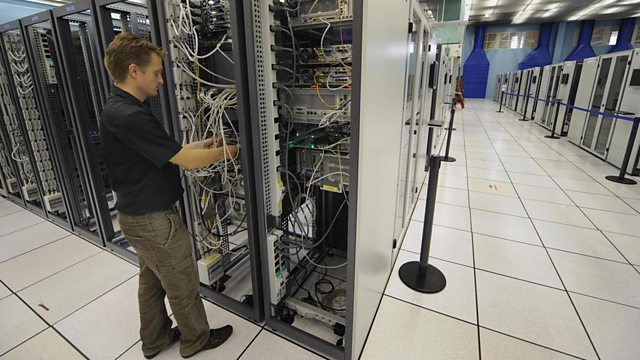
29/05/2012
Author Andrew Keen discusses some possible adverse effects of social networking; Technological help for sailors with spinal cord injuries; CERN openlab – science data-crunching on a giant scale.
Andrew Keen discusses his new book Digital Vertigo: How Today's Online Social Revolution Is Dividing, Diminishing, and Disorienting Us. He warns that social networking could have adverse effects that have not have been properly considered by society. He questions whether our privacy, responsibility and freedom are being threatened.
A team of sailors with spinal cord injuries in New Zealand are using a sailing simulator to re-learn how to sail with their disabilities. Sailability Auckland are using sip-and-puff controllers to set sails and haul ropes.
CERN's Large Hadron Collider (LHC), the world's largest particle accelerator, generates hundreds of millions of particle collisions each second. To record, store and analyse these experiments is a massive data challenge: the LHC produces roughly 20 million gigabytes of data each year. Openlab is a partnership between CERN and IT companies to develop cutting-edge solutions for crunching all these numbers. Next week the fourth phase is officially launched.
(Image: A scientist in the LHC Computing Grid room. Credit: Fabrice Coffrini / AFP / Getty Images)
Last on
Chapters
-
Digital Vertigo
Dangers of the online social networking revolution.
Duration: 05:13
Virtual sailing
Sip and puff controllers are some of the tools to help disabled sailors get back on board.
Duration: 04:47
CERN openlab
Spin off benefits of technology designed to crunch data from the Large Hadron Collider at CERN.
Duration: 04:04
Broadcasts
- Tue 29 May 2012 18:32GMT���˿��� World Service Online
- Wed 30 May 2012 03:32GMT���˿��� World Service Online
- Wed 30 May 2012 10:32GMT���˿��� World Service Online
- Sun 3 Jun 2012 04:32GMT���˿��� World Service Online
- Sun 3 Jun 2012 21:32GMT���˿��� World Service Online
Podcast
-
![]()
Digital Planet
Technological and digital news from around the world.

